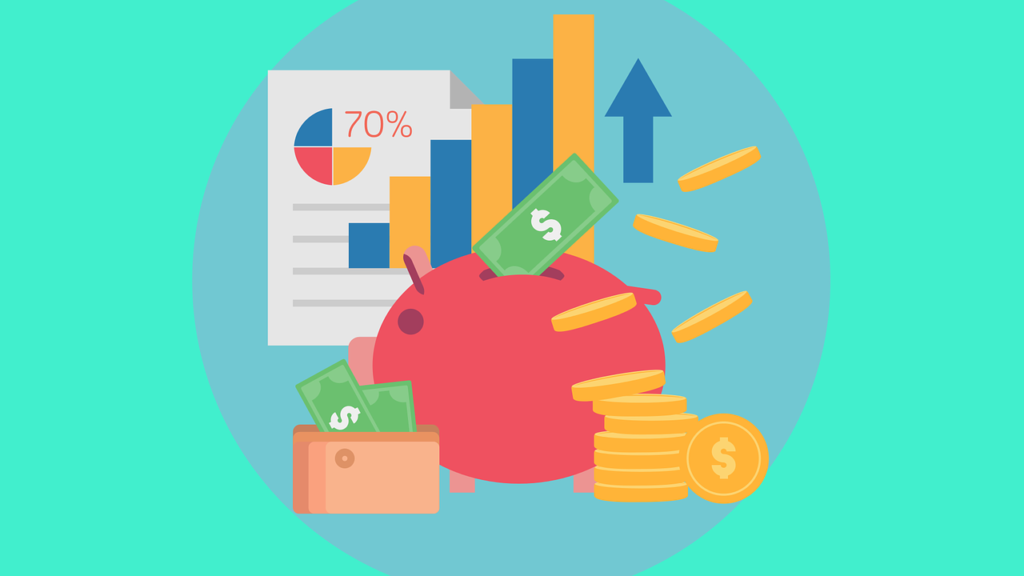
Have you ever been in a situation where you were talking with someone, and they used a term that you didn’t know? That’s never fun. It can leave you feeling like an outsider or just not understanding what is going on. Finance terms are the same way. There are so many of them, it can be hard to keep track of all of them, let alone remember which one does what. In this article, we will talk about 10 financial terms that everyone should know and understand!
#01.” Gross” verses ”net”
One of the first financial terms that people should learn is “gross” versus “net”. Gross means all money earned from a specific source. Net refers to what’s left after expenses have been taken out. For example, you made $100 at your part-time job this week before taxes and deductions.
#02.” Diversification”
Another important finance term to know is “diversification“. Diversification means not putting all of your eggs in one basket. This is done by spreading investments across different types of assets such as stocks, bonds, and commodities. You want to diversify within a certain asset class, too. Profits profitable assets cushion you from losses caused by the non-performing assets.
#03.” Capital gains”
Property values will usually appreciate with time. This will translate to gains because its present value is higher than the price you bought it. The profit that you make when selling an investment for more than its purchase price is called Capital gain. When you sell for less than its purchase price, you make a capital loss. These gains or losses are important because they affect your tax bill. They are also critical when you want to know how much you are worth.
#04.” Emergency Fund”
Having an emergency fund is another financial term you should know about! It’s a cushion of money that you set aside in case something unexpected happens, so it works as extra insurance. Having an emergency fund also keeps you from resorting to borrowing or withdrawing your savings.
#05.” Liquidity”
Another common finance term is Liquidity. It describes how easy it is for your assets to be converted into cash without taking a big loss. It is important because you need to balance your investments based on liquidity. You could be having assets in millions of dollars, but when an emergency comes calling, you will need cash liquidity. Liquid assets generally have a lower yield compared to assets such as land.
#06.” Credit Score”
A credit score can help or hurt your chances of getting a loan approved by banks and credit card companies! A good credit score means that lenders see you as a low-risk borrower. A bad credit score means that they see you as high risk and may not be willing to work with you or offer lower rates, if at all. You can work on improving your credit score by exercising financial discipline. This is of most used finance terms today.
#07.” Credit card debt”
Credit card debt is another term everyone should know about! It occurs when you don’t make your minimum monthly payment on time, causing the balance – what’s owed – to increase. The interest rate on credit cards is typically high, so if you don’t pay off your balance every month, then it can quickly become a situation that’s difficult to get yourself out of!
#08.” Taxes”
Taxes are another important financial term mentioned every day! They’re something we all have to deal with, but not everyone knows how they work. You have to pay taxes on income, investments, and property you own. Taxes are the main source of revenue for most governments. So keep this in mind when thinking about how much of that cash in the account belongs to you!
#09.” Debt-to-income”
‘Debt-to-income’ is the amount of debt that you have divided by your income. It shows how much money goes to paying off debt each month. The higher this number gets, the less money is available for other expenses! If you’re trying to get a loan, then it’s important that your debt-to-income ratio is at or below 43%. This is because lenders want to ensure that you can afford the monthly payments on a loan before approving it. If your debt-to-income ratio is high, then your probability of default is equally high.
#10.” Commodities”
The last of the finance terms we will talk about in today’s article is “commodities”. Commodities are a type of asset that consists of raw materials such as grains, energy products, and metals. When you think about petroleum, coffee, gold, or wheat, you are actually thinking about commodities. These are goods that have standard characteristics that traders can grade accurately. It doesn’t matter where you are, the 18-carat gold bar is the same.
Did you know what all of these financial terms mean? If not, don’t worry! We’ve explained them in today’s blog post, and we hope that this has helped. Financial literacy is very important for everyone. Keep visiting our site because we also cover other topics such as small business & personal finance!


